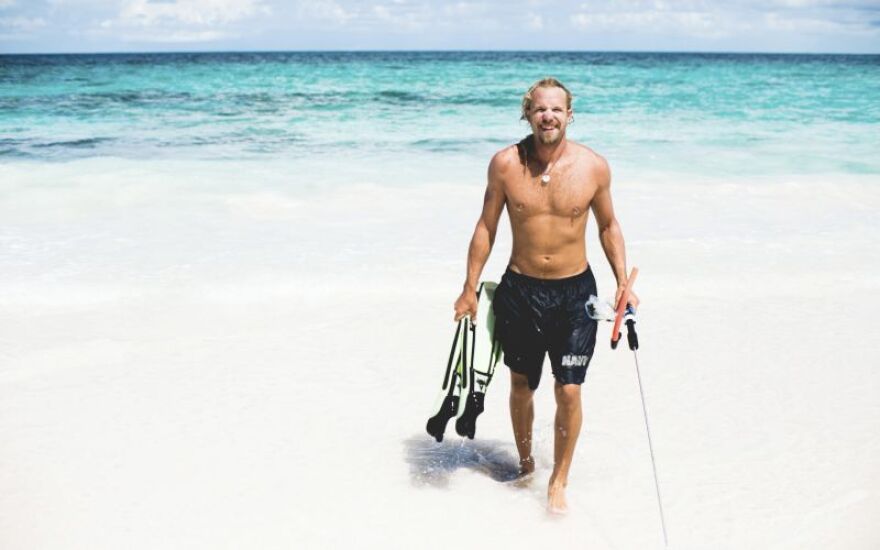One Vermonter is doing everything he can to raise awareness of a little-known danger connected to swimming and free-diving. For Dean Haller, this effort comes from painful personal experience. His son, Benjamin Haller, died this summer at the age of 27, after experiencing Shallow Water Blackout.
Haller describes his son as “an incredibly adventurous spirit. Someone who pushed himself. He would establish goals and objectives, and quite often exceeded them. A risk-taker, but he was an individual who just had tremendous lust for life and he just lived every minute he possibly could.”
Benjamin, or Benjo as he was known, was a SCUBA instructor and an accomplished sailor. He had sailed to the Bahamas from Malletts Bay this summer on a 30-foot sailboat, accomplishing a childhood dream. He was practicing holding his breath underwater for spear fishing when he drowned.
“Through a practice called hypoxic training, more commonly known as hyperventilation, through hyperventilation,” Dean Haller explained. “You are commonly thinking that you are expanding your lung capacity to be able to hold more air, which there’s some truth to, but unfortunately what you’re doing at the same time is you’re taking the level of carbon dioxide that’s in the blood system dangerously below the normal level that’s in our bodies at all times. It’s carbon dioxide that really triggers the brain that it’s time to breathe. Through the hyperventilation you’ve taken that carbon dioxide well below the normal level, and the last thing that you’re doing, or you’re going to do when you’re hyperventilating before you dive is you take a deep breath, you go under water and you are using up air. You are building up carbon dioxide as you normally do, but because you’re level is abnormally low, it doesn’t build up to the threshold that sends the signal to the brain."
When the body is low on oxygen, the victim passes out, which causes the body to try to take a breath. “When you’re under water and you’ve passed out, tragedy occurs like it did with our son.”
Benjamin died in early August of this year. Since then, his father has been working to raise awareness of Shallow Water Blackout. And he says it can happen to children, too.
“It’s through excessive activity. What kids are doing, they’re running around in the yard and exerting themselves and breathing hard, and they’re doing the same thing that happens through breath-holding, you’ve taken the carbon dioxide level well below normal, and then the kid jumps in the pool and starts playing Marco Polo or something where they’re holding their breath and the same thing happens,” Haller explained.
Shallow Water Blackout Prevention is trying to raise awareness of the issue, and Dean Haller has joined the group’s board of directors.
They want breath holding practice and training to be banned in public pools. The Centers for Disease Control has said they will add a ban on breath holding to the warning signs that hang in most public pools.
But Haller said it’s really about awareness. “If you are going to do that [breath-holding], you have a buddy with you, staying by your side. Quite frankly, my son, as experienced as he was in diving – he had well over 1,500 dives in his log – his friend who was doing it with him went up and Ben didn’t. He should have gone up with his friend … again, Ben taking risks, pushing his limits, thinking he would stay down a little bit longer. But if you’re going to do this, you should do it after being trained how to do it, and do it with someone with you at your side at all times.”
A memorial was held this past weekend for Benjamin Haller at the International Sailing Center in Colchester.
“It helped bring some closure to us and those whose lives Ben touched.”
The Haller family has started a foundation, called Live Like Benjo, to raise awareness of Shallow Water Blackout and to establish scholarships for children to attend the International Sailing Center in Colchester.







